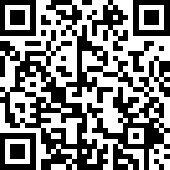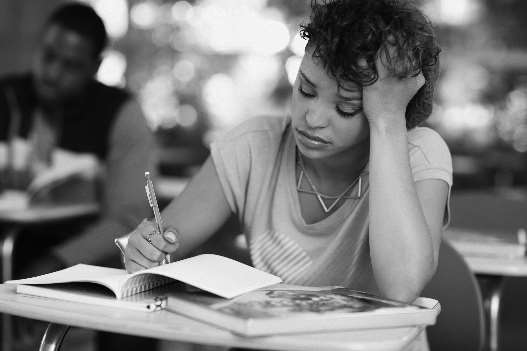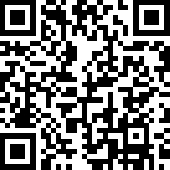





Directions: In this part, you’ll listen to five sentences.Each sentence will be read three times.Write down the sentences according to what you’ve heard on the lines provided below.

Directions: Please discuss the following questions in small groups.

1)What challenges have you met so far as a freshman?
2)What main qualities do you expect from university professors?
Directions: Read the following short passage related to the video you are going to watch.
Procrastination is the avoidance of doing a task that needs to be accomplished.It is the practice of doing more pleasurable things in place of less pleasurable ones, or carrying out less urgent tasks instead of more urgent ones, thus putting off impending (迫切的) tasks to a later time.Sometimes, procrastination takes place until the“ last minute” before a deadline.Procrastination can take hold on any aspect of life—putting off cleaning the stove, repairing a leaky roof, seeing a doctor or dentist, submitting a job report or academic assignment or broaching (谈起) a stressful issue with a partner.Procrastination can lead to feelings of guilt, inadequacy, depression and selfdoubt.

In a study on academic procrastination from the University of Vermont, 46% of the subjects reported that they “always” or “nearly always” procrastinate writing papers, while approximately 30% reported procrastinating studying for exams and reading weekly assignments (27.6% and 30.1% respectively).Nearly a quarter of the subjects reported that procrastination was a problem for them, regarding the same tasks.However, as many as 65%indicated that they would like to reduce their procrastination when writing papers and approximately 62% indicated the same for studying for exams and 55% for reading weekly assignments.
Another study showed that “52% of surveyed students indicated having a moderate to high need for help concerning procrastination.” It is estimated that 80%-95% of college students engage in procrastination, and approximately 75% consider themselves procrastinators.In a study performed on university students, procrastination was shown to be greater on tasks that were perceived as unpleasant or as impositions (强加) than on tasks for which the student believed he or she lacked the required skills for accomplishing the task.
For some people, procrastination can be persistent and tremendously disruptive (破坏的) to everyday life.For these individuals, procrastination may be symptomatic (有症状的) of a psychological disorder.Procrastination has been linked to a number of negative associations, such as depression,irrational behavior,low self-esteem, anxiety and neurological (神经学) disorders such as ADHD (Attention Deficit Hyperactivity Disorder注意力缺陷多动症).Others have found relationships with guilt and stress.Therefore, it is important for people whose procrastination has become chronic (慢性的) and is perceived to be debilitating (使人衰弱) to seek out a trained therapist (治疗专家) or psychiatrist (神经病医生) to see if an underlying mental health issue may be present.

Directions: This part contains 5 multiple choice questions based on the following video clip.You should select the best answer to each question.Before you watch the video, study the words and expressions in the table below.The video clip will be played twice.When it is played for the first time, you should pay attention to the main idea and answer some general comprehension questions.When it is played for the second time, you should focus on the important details and answer some specific comprehension questions.

1)Why is it critical to know what kind of student you are in order to beat procrastination?
A.Because no one can truly understand you.
B.Because you can make your own choice.
C.Because useful tips are barely accessible.
D.Because others may feel reluctant to help.
2)What is NOT the feature of the first type of students?
A.They usually plan the steps in advance.
B.They get tasks done way before deadlines.
C.They work late with high efficiency.
D.They are very self-disciplined.
3)When can the second type of students sit down and get to work?
A.When they feel peer pressure.
B.When deadlines are approaching.
C.When there isn’t any distraction.
D.When they are truly in work mode.
4)If you are one of the second type of student, you are advised to___.
A.make a change in yourself
B.learn from the first type
C.ignore others’ suggestions
D.accept who you really are
5)What is the speaker’s attitude towards these two types of students?
A.She disapproves of the first type.
B.She is neutral to either of them.
C.She is doubtful about both of them.
D.She disapproves of the second type.
Directions: Answer the following questions briefly according to the content of the video you have just watched.
1)Why does the speaker choose procrastination as the topic?
____________________________
2)What should students do if their current study method doesn’t work out well?
____________________________
3)What is suggested if students need more specific strategies to beat procrastination?
____________________________
Directions: In this part, you are required to write an essay of no less than 120 words based on the video above.Write a short summary of the video and make comments on it.
日常生活中,问路是我们用英语交流时常常碰到的语境,以下为问路时的常用表达法。

You will hear:
Man:Excuse me, what’s the quickest way to get to the Palace Museum?
Woman: You can take the subway.Go straight for one block and the station is opposite to the bus stop.
Question: How can the man get to Palace Museum?
You will read:
A.By walking.
B.By bus.
C.By subway.
D.By taxi.
女士建议男士坐地铁,但到地铁站要先直行,走一个街区。地铁站就在公交车站的对面。从句意中得知答案应为C项。

Directions: In this section, you will hear 8 short conversations.At the end of each conversation, a question will be asked about what was said.Both the conversation and the question will be spoken only once.After each question there will be a pause.During the pause, you must read the four choices marked A, B, C and D, and decide which is the best answer.
1)A.She has never seen a mail box around here.
B.She has never been here before.
C.She is unwilling to help the man.
D.She is unsure which mail box the man is looking for.
2)A.The Carrefour is on the opposite side.
B.The Carrefour is far away from the street.
C.The Carrefour is on the right side of the street.
D.The Carrefour is not around according to the woman.
3)A.It’s inside the Central Park.
B.It’s across the Central Park.
C.It’s on the thirteenth Avenue.
D.It’s on the thirtieth Avenue.
4)A.It’s on the right side of the street where the man is.
B.It’s half a mile from the street where the man is.
C.It’s on the left side of Willow Street.
D.It’s three blocks from Willow Street.
5)A.Go down the street for a mile and a half.
B.Go half a mile down the street then turn right.
C.Turn left then go directly down the road.
D.Go straight down to the end of the road and turn right.
6)A.Drive past the cinema then turn left.
B.Drive to Brown Street then turn left.
C.Turn right when you reach the cinema.
D.Turn left on Brown Street and then right.
7)A.Go to the second light and turn right, then go to the fourth stop sign.
B.Go to the fourth light and turn left, then go to the second stop sign.
C.Go to the second light and turn left, then go to the fourth stop sign.
D.Go to the fourth light and turn right, then go to the second stop sign.
8)A.He wants to know how to get to the Red House.
B.He wants to find a shop selling maps.
C.He wants to know his current location.
D.He wants the woman to guide him to the Red House.
Directions: In this section, you will hear 2 long conversations.At the end of each conversation, some questions will be asked about what was said.Both the conversation and the questions will be spoken only once.After each question there will be a pause.During the pause, you must read the four choices marked A, B, C and D, and decide which is the best answer.
A.Pair Work
Directions: Please discuss the following question with your partner.When a student wants to rent an apartment while studying abroad,he is likely to consider the following factors:
 The surroundings of the place
The surroundings of the place
 Monthly rent
Monthly rent
Please try to find out some other factors.

B.Listening
Directions: First study the words and expressions in the table below.Then listen to the conversation and select the best answer to each question.


1)A.To check the apartment.
B.To pay the deposit.
C.To rent an apartment.
D.To sign a lease with the lady.
2)A.Basketball courts and a swimming pool.
B.Saunas and basketball courts.
C.A recreation area and a swimming pool.
D.Tennis courts and a recreation area.
3)A.He has to share the cost with his girlfriend.
B.He has to wash dishes himself.
C.He doesn’t need to pay too much deposit.
D.He doesn’t need to sign a lease.
A.Group Work
Directions: Please discuss the following questions in small groups.

1)What is your major? Do you like it or not? Why?
2)What factors do you consider important when you choose your major?

B.Listening
Directions: First study the words and expressions in the table below.Then listen to the conversation and select the best answer to each question.

4)A.The courses of Business Administration.
B.Elective courses.
C.Compulsory courses.
D.The courses of Ecology.
5)A.Because she needs it for her BS program.
B.Because it’s an elective for her.
C.Because it seems very interesting.
D.Because she will work for a green company.
6)A.Forty dollars.
B.Forty-five dollars.
C.Under thirty dollars.
D.Under thirty-five dollars.
7)A.He really enjoys university life.
B.He’d like to use a second-hand textbook.
D.He has chosen business administration to be his major.
D.He feels many majors have a lot of promise to make money.
Directions: In this section, you will hear 3 news reports.At the end of each report, you will hear some questions.Both the report and the questions will be spoken only once.After you hear a question, you must choose the best answer from the four choices marked A, B, C and D.


1)A.ISU programs include participants across different generations.
B.ISU programs are supported by people of diverse backgrounds.
C.ISU programs offer advanced expertise and equipment.
D.ISU programs adopt project-based learning approach.
2)A.She was born in the U.S.after her parents emigrated there.
B.She was the first woman to participate in a space program.
C.She was killed in a space mission almost two decades ago.
D.She was honored as the first African woman in space.
3)A.They need to give a written and oral report on their findings.
B.They need to build up a model for the ongoing program.
C.They need to pass a test on how space helps fight pandemics.
D.They need to finish a space mission as a real astronaut.


4)A.The increasing corruption among colleges.
B.The increasingly shaky economy nationwide.
C.The fact that more high school graduates pursue study overseas.
D.The fact that supply exceeds demand in the education market.
5)A.It builds a close-knit student community.
B.It offers international study programs.
C.It covers a large area of school grounds.
D.It provides various cultural courses.
6)A.They must seek permission to share their oversea experiences.
B.They must work on issues related to their main field of study.
C.They must obtain the certificate issued by a foreign university.
D.They must prove that they enjoy their life in a foreign country.


7)A.Difficulties in cutting the expense of higher education in the US.
B.Creative ways to keep the prices down for American universities.
C.The coming rise in prices for American universities and colleges.
D.Sharp rise in the costs of US higher education during the pandemic.
8)A.18 percent.
B.29 percent.
C.19 percent.
D.28 percent.
9)A.Reducing courses and scholarships.
B.Having more students in one class.
C.Offering maintenance service.
D.Providing mental health services.
10)A.Students feel more anxious about their relationships with others.
B.Many professors are worried about their retirement accounts.
C.Mental health services for the faculty are getting more important.
D.More depression has been found among students than before.

Directions: In this section, you will hear a lecture.At the end of the lecture, you will hear some questions.Both the lecture and the questions will be spoken only once.After you hear a question, you must choose the best answer from the four choices marked A, B, C and D.

1)A.What the applicants need to do when they apply to graduate schools.
B.The differences between undergraduate admissions and graduate admissions.
C.The tips for undergraduate admissions.
D.How to apply for doctoral programs.
2)A.Critical thinking ability.
B.Leadership experiences.
C.Academic ability.
D.A degree in a relevant field.
3)A.Extracurricular activities and the LSAT score.
B.Strong letters of recommendation.
C.A convincing personal statement.
D.GPA and the performance on the MCAT test.
4)A.You may be asked to prove your ability in your intended area.
B.A perfect GPA is very important for students to get a degree.
C.Doctoral programs emphasize conducting and publishing original research.
D.The admission process isn’t concerned with your motivation and preference.
